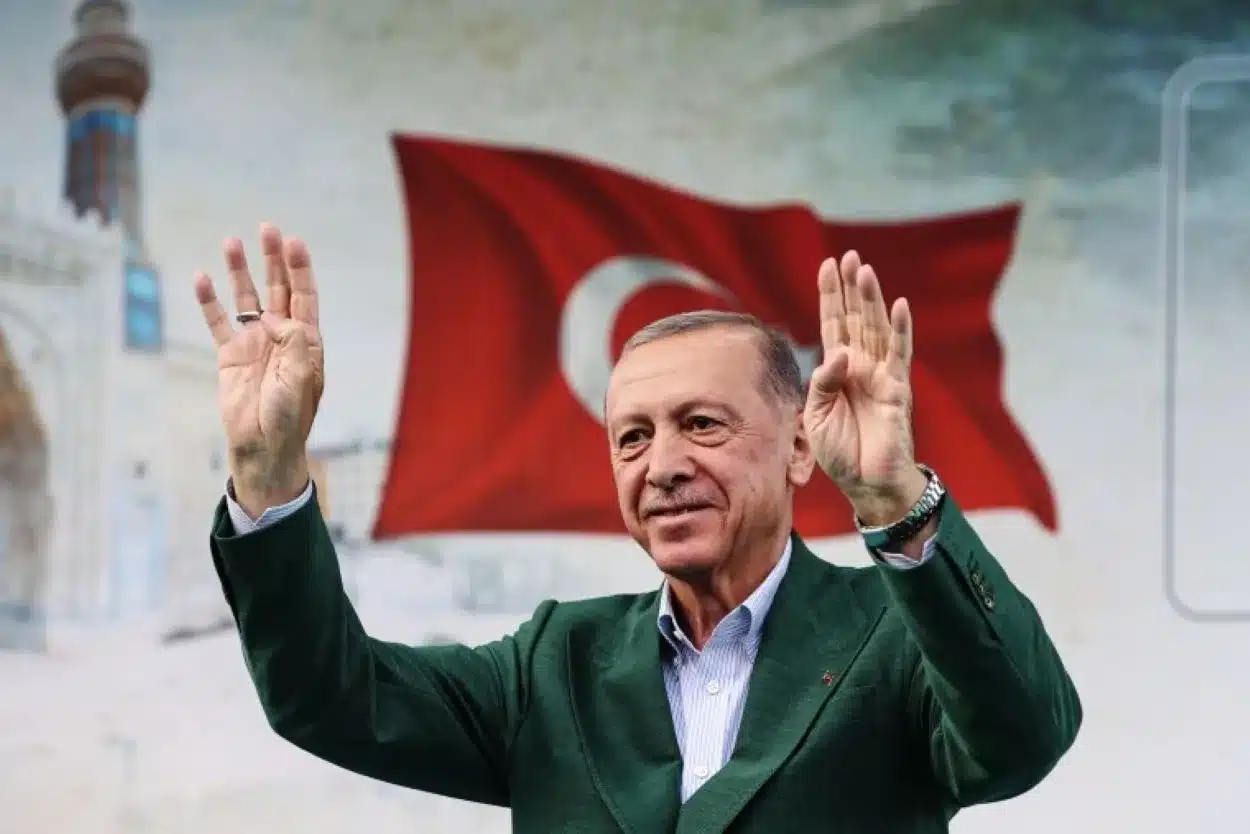Turkey’s incumbent President, Tayyib Erdogan, has declared victory in the nation’s recent presidential elections, a win that will carry his increasingly authoritarian regime into its third decade. Erdogan’s win has come despite stiff political opposition.
Addressing his supporters atop a bus in Istanbul, Erdogan expressed gratitude to the Turkish citizens who entrusted him with leadership responsibility for the next five years. However, he emphasized that Turkey was the real victor of the election.
Erdogan’s main rival, Kemal Kilicdaroglu, backed by a coalition of six opposition parties, has not yet responded to Erdogan’s victory speech. Meanwhile, Erdogan has received congratulations from international leaders, including Russian President Vladimir Putin and the leaders of Iran, Algeria, and Qatar.
The election was perceived as a critical juncture in Turkey’s political trajectory, especially as Erdogan’s popularity hit due to a cost-of-living crisis. Nonetheless, this victory solidifies his invincible image, having already reshaped the country’s domestic, economic, security, and foreign policies and placing Turkey as a regional powerhouse.
Read: President Erdogan Claims Victory in Turkish Presidential Election
As per reports, with almost 99% of ballot boxes counted, Erdogan appears to have the lead. He led a strongly nationalist and conservative campaign, which helped him deflect attention from profound economic difficulties.
Kilicdaroglu’s defeat may cause concern in Western capitals, given his promises for a more democratic and collaborative Turkey, coupled with growing concerns over Erdogan’s Russian ties.
Despite Erdogan’s past confrontations with various Middle Eastern governments, his continued leadership for another five years doesn’t seem to be sparking the worry it might have done in the past. Instead, Erdogan’s supporters celebrated his victory, expressing hopes for a stronger and better Turkey under his rule.
The incumbent’s enduring support seems to hinge on his ability to convince his followers of his problem-solving skills, even though many issues may be his own. His continuous backing from conservative voters, who often felt sidelined by Turkey’s secular elites, also played a key role.






